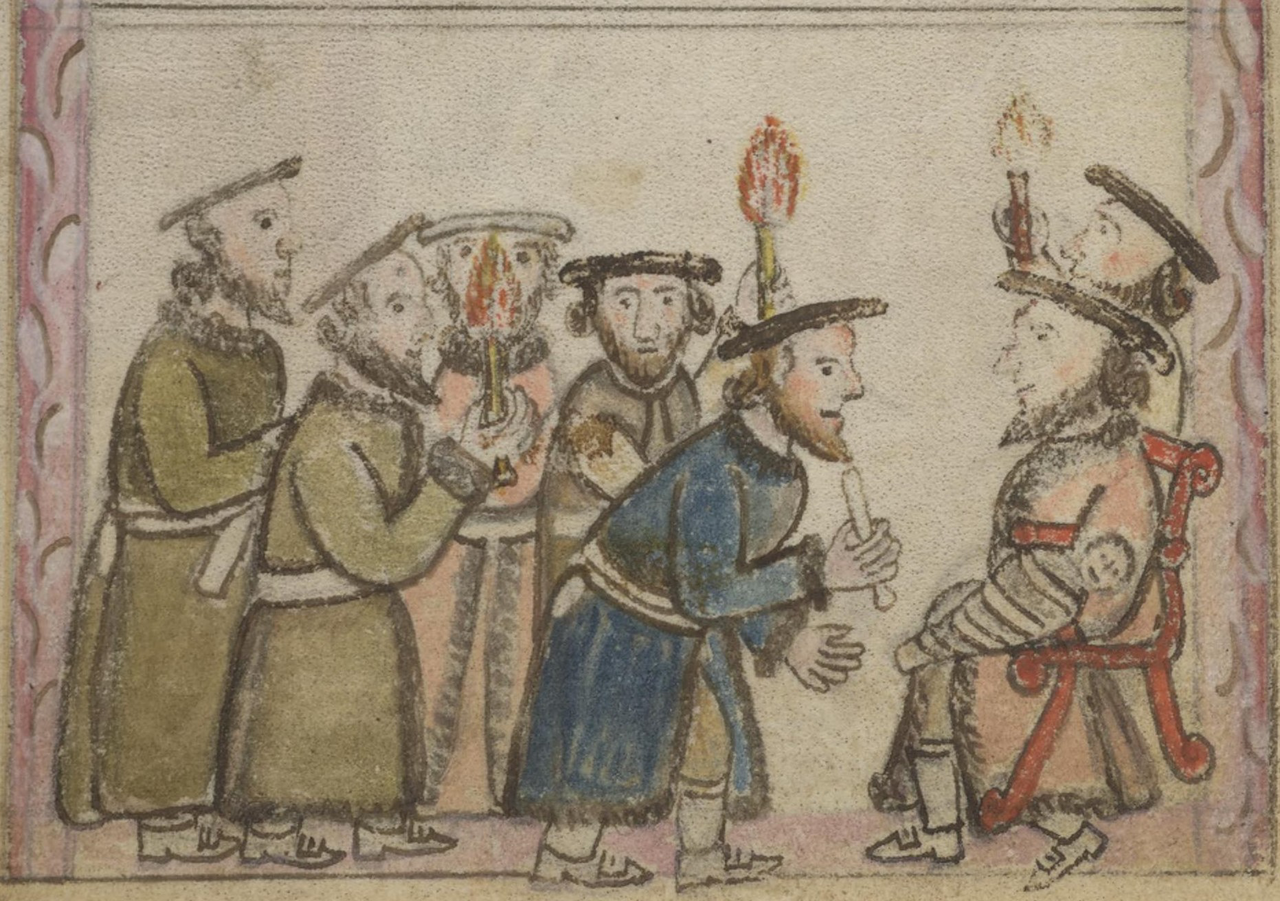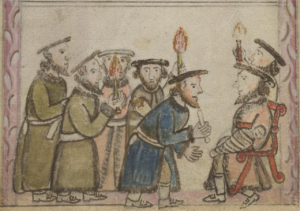This is an archive of prayers offered at the primary life cycle ritual for infants.
⤷ You are here:
🖖︎ Prayers & Praxes —⟶ 🌳︎ Life cycle —⟶ Jewish Life Cycle —⟶ Brit Milah & Simḥat Bat 📁 Bnei (Bar/Bat) Mitsvah & Other Birthday Prayers :: (Next Category) 🡆 Brit Milah & Simḥat BatThis is an archive of prayers offered at the primary life cycle ritual for infants. Filter resources by Collaborator Name Yoni Ashar | David ben Yishai (traditional attribution) | Marcus Heinrich Bresslau | Aryeh Cohen | Estampado por Ǧ. Griffit | Lisa Exler | Chajm Guski (German translation) | Joshua Gutoff | David Zvi Kalman | Benjamin Kamm | Elie Kaunfer | Anna Lachmann | Isaac Gantwerk Mayer (translation) | Wolf Mayer | Yehoshua Heshil Miro | Lilian Helen Montagu | Andreas Rusterholz (transcription) | Dovi Seldowitz | the Shalom Center | David Silber | Devora Steinmetz | Unknown | Aharon N. Varady (transcription) | Aharon N. Varady (translation) | Arthur Waskow Filter resources by Tag Al haShminit | Atah Hu | אז ישיר Az Yashir | baby daughters | ברית brit | brit milah | ceremony | circumcision | dairy foods | English vernacular prayer | female | German Jewry | German vernacular prayer | הדר Hadar | infants | Izmir | Jewish Women's Prayers | Ladino Translation | לכה דודי Lekhah Dodi | masculinity | מזמור Mizmor | naming | naming ceremonies | Needing Proofreading | Needing Vocalization | North America | Nusaḥ Ashkenaz | Ottoman Empire | Ottoman Jewry | parent | Parents blessing children | פיוטים piyyuṭim | Pnai Or | prayers concerning children | Prayers on behalf of children | תהלים Psalms | Psalms 12 | Renewal | פרשת וזאת הברכה parashat vZot haBrakhah | שבועות Shavuot | שירת הים Shirat haYam | שמחת בת simḥat bat | soporifics | תחינות teḥinot | Teḥinot in German | Torah as milk | traditional egalitarian | 19th century C.E. | 20th century C.E. | 21st century C.E. | 56th century A.M. | 57th century A.M. | 58th century A.M. Filter resources by Category Filter resources by Language Filter resources by Date Range Resources filtered by COLLABORATOR: “Devora Steinmetz” (clear filter) Sorted Chronologically (old to new). Sort most recent first? We name our daughters on their fifteenth day of life. This is based on Vayiqra 12:1-5, which describes the length of a woman’s period of impurity after childbirth. If she gives birth to a son, she is impure for seven days; if she gives birth to a daughter, she is impure for fourteen days. The passage seems to connect the baby boy’s circumcision on the eighth day to the conclusion of the mother’s seven day period of impurity. (Similarly, Vayiqra 22:27 says that a newborn animal must remain with its mother for seven days, and on the eighth day and onward it is acceptable as a sacrificial offering.) It seems, then, that for the first seven days of a little boy’s life, and the first fourteen days of a little girl’s life, the child and mother are still closely linked, and both remain separate from the larger family and community. Then, on the eighth day of her son’s life, and on the fifteenth day of her daughter’s life, the mother begins to rejoin her family and community, and the child too becomes incorporated as a member of the family and community. That is why a baby boy’s father becomes obligated to circumcise his son only on the eighth day, and why the baby boy first receives his name at his brit milah; it is then that the baby boy becomes a member of the community of Israel. On our daughter’s fifteenth day, we come together as a family and as a community to welcome this new member and to give her a name. . . . Categories: Tags: Contributor(s):
Stable Link:
https://opensiddur.org/index.php?cat=391
Associated Image: 
Brit Mila. This illustration comes from f. 5r of Sefer Ot haBrit, an 1824 gift from a certain Jonah Quo, rabbi, to Ezekiel Treich, mohel of Lipník nad Bečvou. (This image is set to automatically show as the "featured image" in shared links on social media.)
Terms of Use:
Be a mentsch (a conscientious, considerate person) and adhere to the following guidelines:
Additional Notes:
Support this work:
The Open Siddur Project is a volunteer-driven, non-profit, non-commercial, non-denominational, non-prescriptive, gratis & libre Open Access archive of contemplative praxes, liturgical readings, and Jewish prayer literature (historic and contemporary, familiar and obscure) composed in every era, region, and language Jews have ever prayed. Our goal is to provide a platform for sharing open-source resources, tools, and content for individuals and communities crafting their own prayerbook (siddur). Through this we hope to empower personal autonomy, preserve customs, and foster creativity in religious culture.
ויהי נעם אדני אלהינו עלינו ומעשה ידינו כוננה עלינו ומעשה ידינו כוננהו "May the pleasantness of אדֹני our elo’ah be upon us; may our handiwork be established for us — our handiwork, may it be established." –Psalms 90:17
| ||
Sign up for a summary of new resources shared by contributors each week
  |
